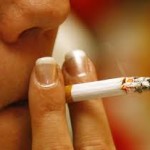
To no surprise, smokers and non-smokers alike, everyone knows that the nicotine habit is not a good thing for undergoing surgery. There is the obvious lung function and breathing issues that may be impacted from being put to sleep and the hacking and coughing afterwards as one recovers. It is also fair to say that smokers just aren’t as healthy as many non-smokers and this exposes them to numerous other health issues.
But when it comes to having plastic surgery, there is one effect of smoking that is hidden and unrecognized by patients. Medically stated, it is known as impaired perfusion and oxygenation. Simply put, the blood supply necessary for survival of certain tissues undergoing surgery is lessened. This will make healing slower and sometimes compromised and tissues may even die. The nicotine in cigarettes and the carbon monoxide in cigarette smoke (second hand smoke still counts!) acts as toxins on blood vessels causing them to constrict or shut down, starving the tissues of precious oxygen that they need not only to heal but to live as well. This will also affect the smallest of veins in the tissues, not allowing them to not get the blood flow out of the tissues. Without a good outflow, the whole system backs up ultimately impeding vital inflow of blood as well.
This blood flow in and out is most affected by smoking in operations in which tissues are carried on what we call in plastic surgery long pedicled flaps. In breast reductions and breast lifts, the nipple is carried on a flap of attached breast tissue as it is repositioned during the surgery. The normal blood supply is cut out from the nipple in many directions and only comes in through the attached pedicle, making this the critical connection to the nipple’s survival. Because smoking will diminish even that blood supply, one can see how the blood flow to the nipples may get backed up and not enough oxygen get to them. This can make the nipples die, turn black, and ultimately fall off.
Problems of a near similar magnitude can occur in any cosmetic plastic surgery procedure in which long skin flaps are raised and repositioned, often under tension. (which makes it even worse) Procedures such as facelifts, tummy tucks and any other body contouring procedure that requires skin excision is at risk. While these areas don’t have nipples, the problem will be one of skin edges dying, wounds coming open and a long delayed period of wound healing.
The bottom line is when your plastic surgeon says to stop smoking for a period time before and after your planned surgery, this is not just a suggestion. It is an absolute requirement. To not do so, or to say you tried but couldn’t, places you at considerable risk for a healing problem and an undesired aesthetic outcome.
Dr. Barry Eppley
Indianapolis, Indiana


